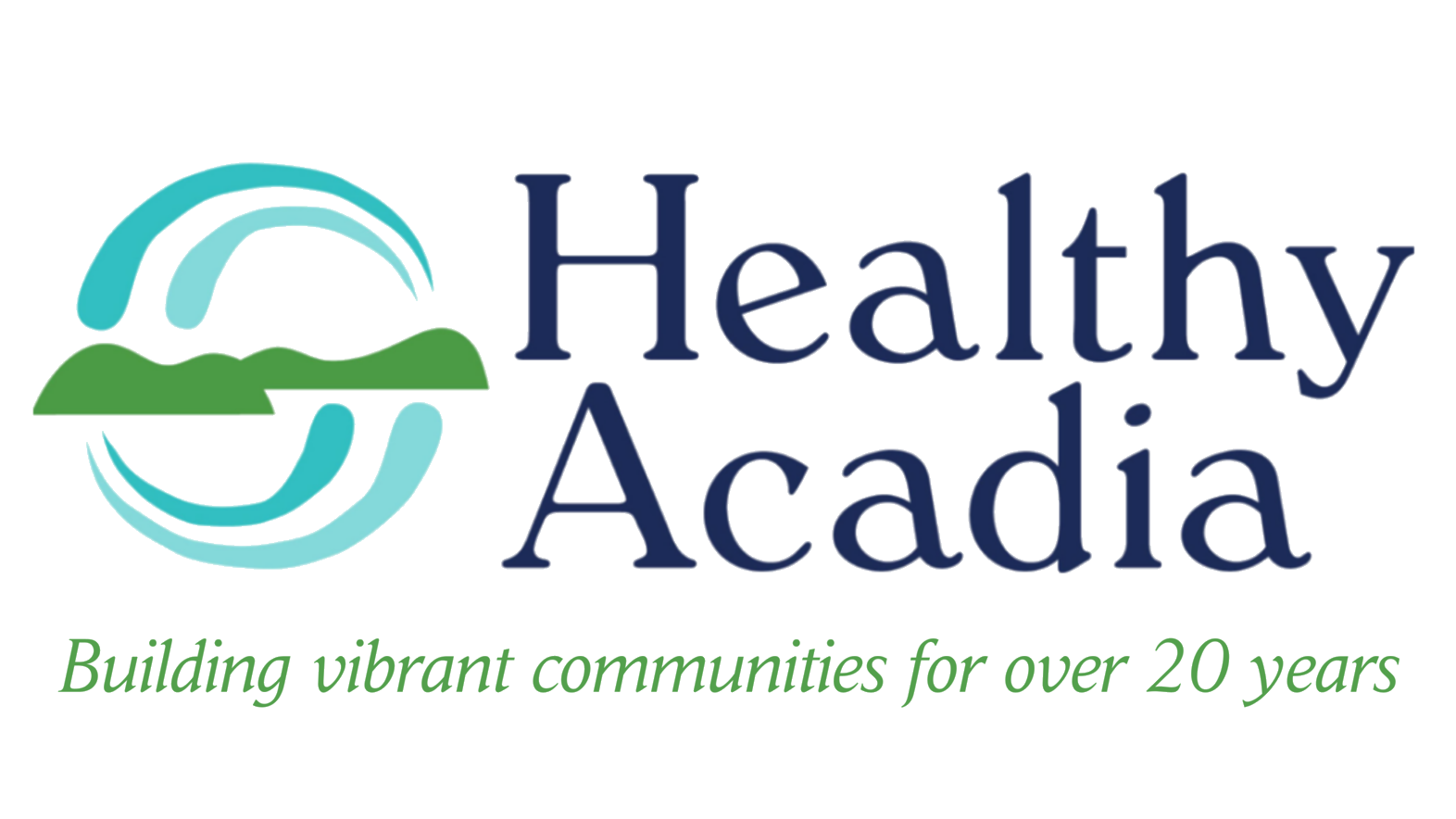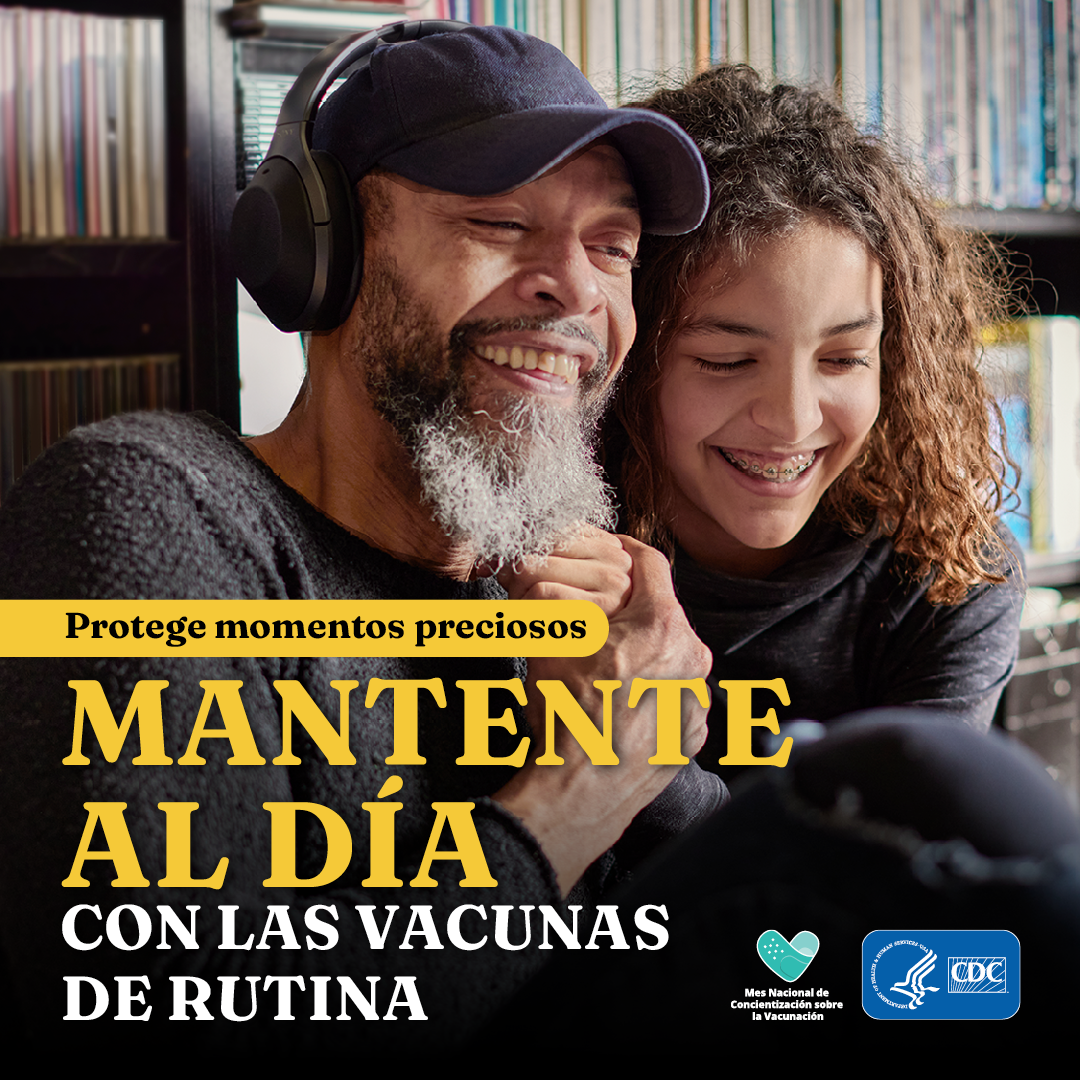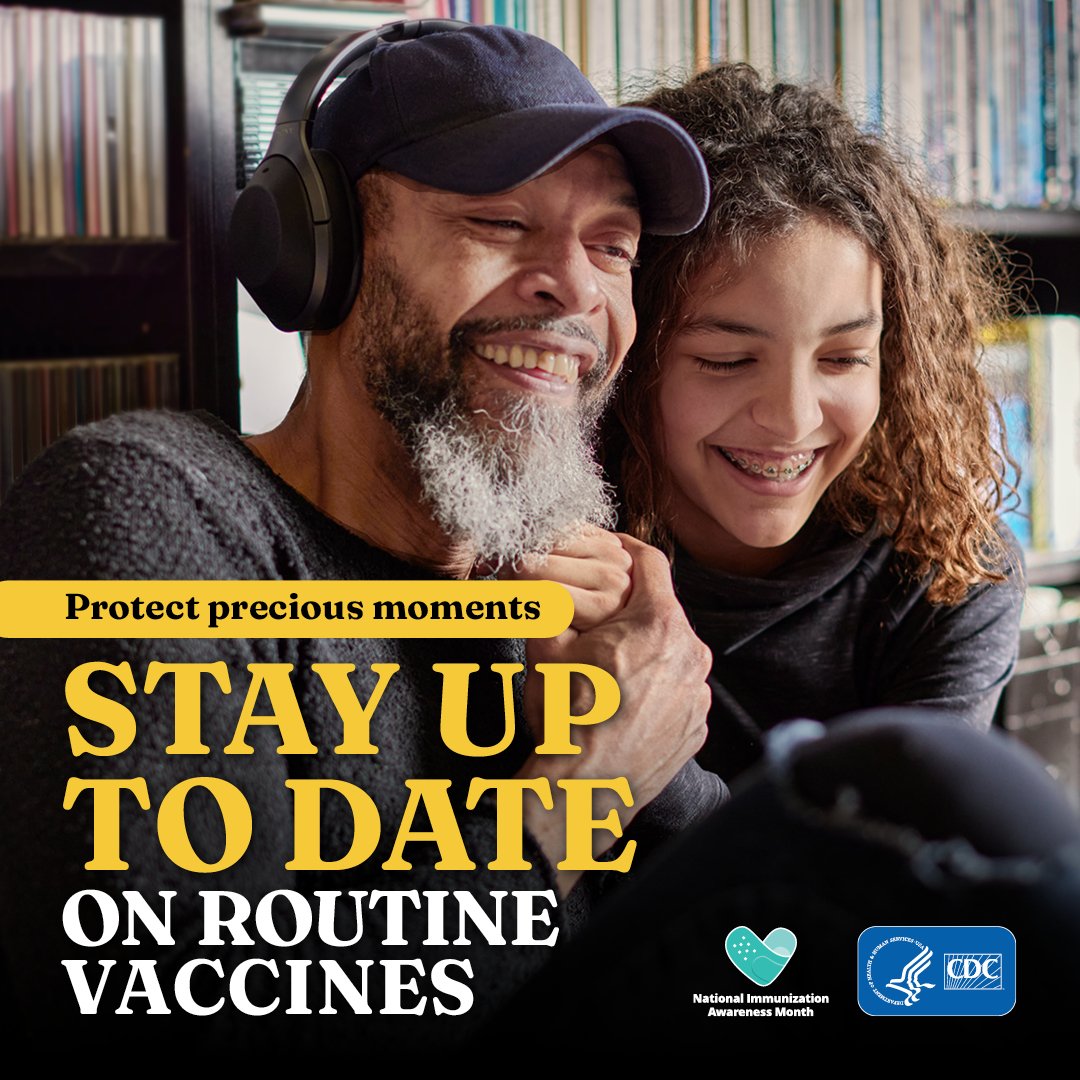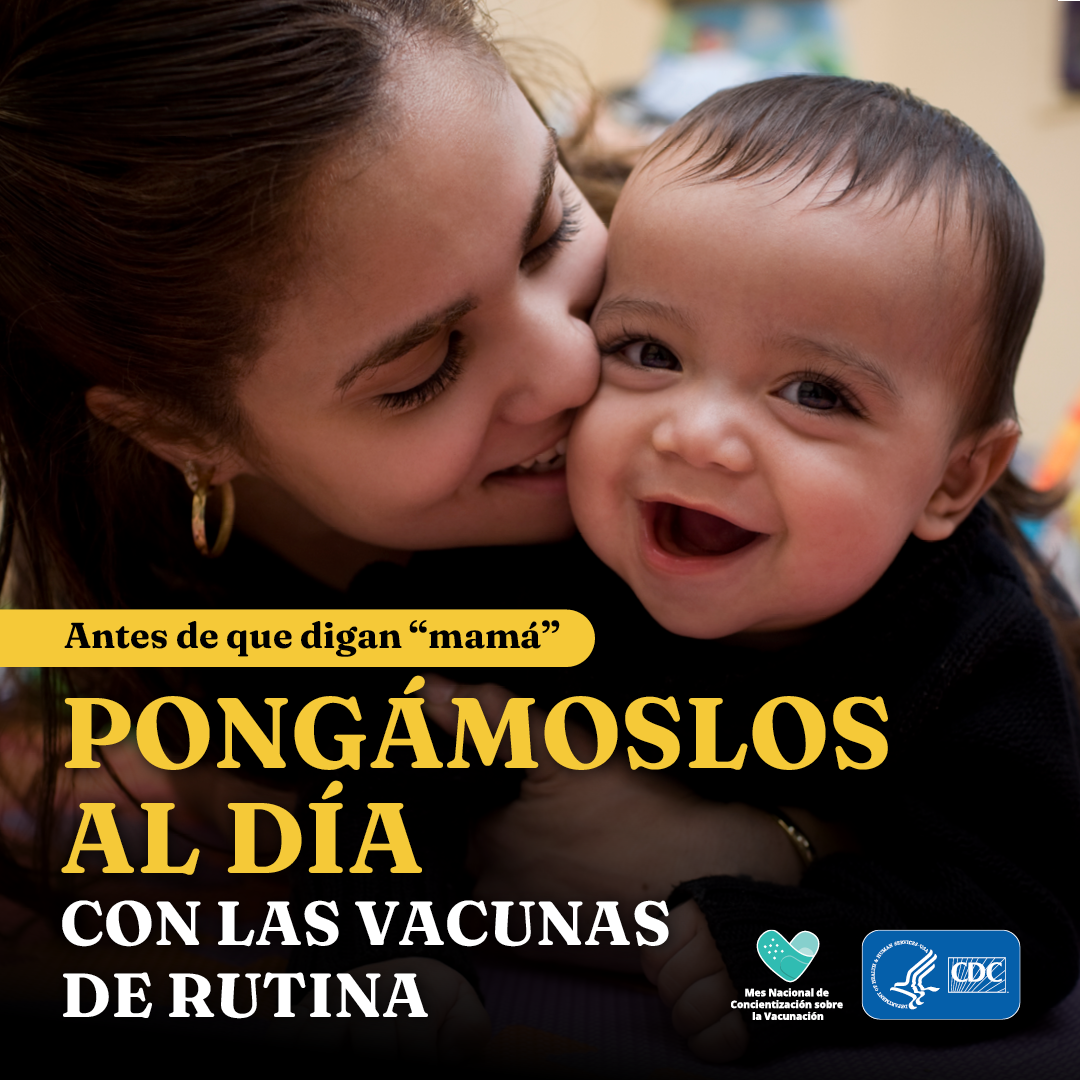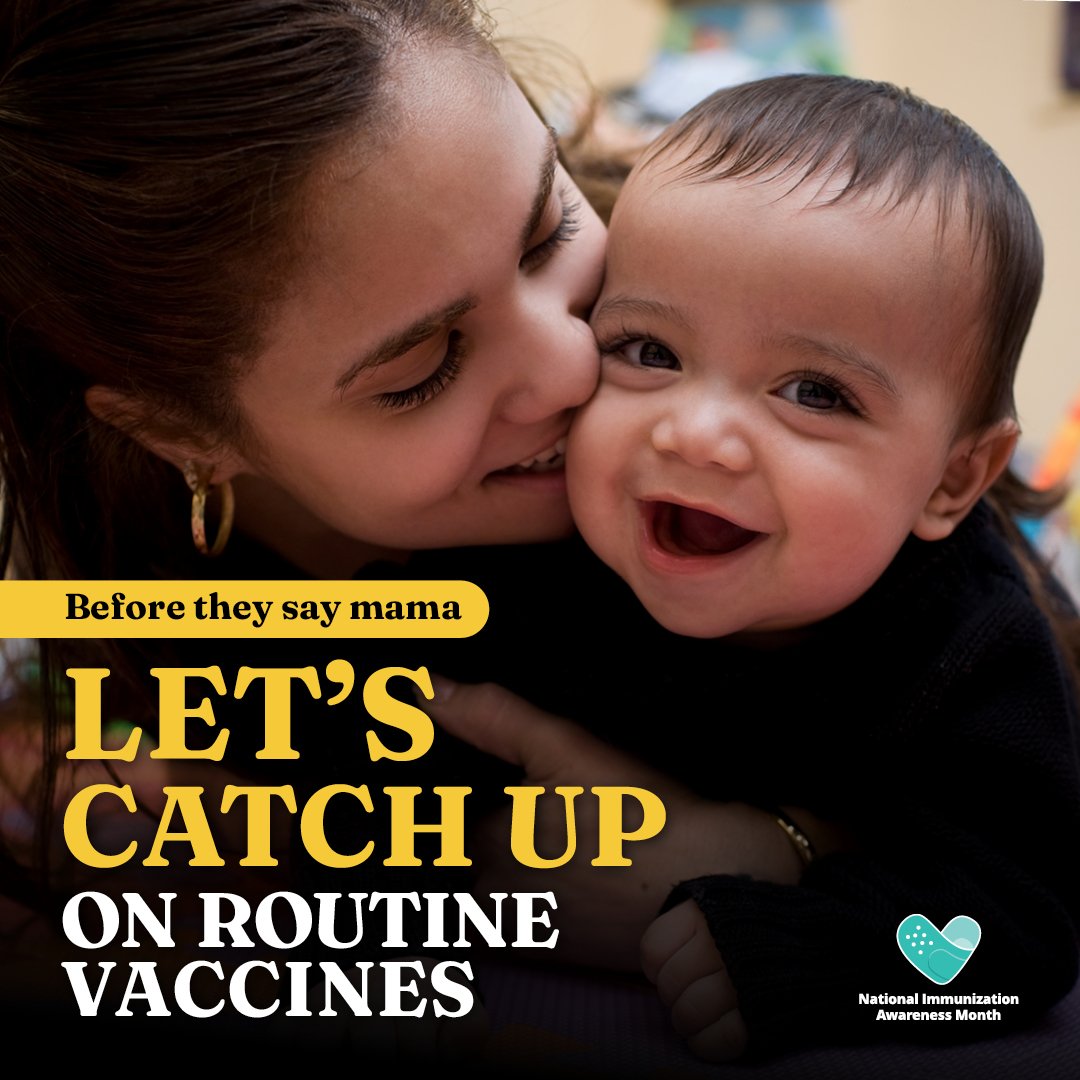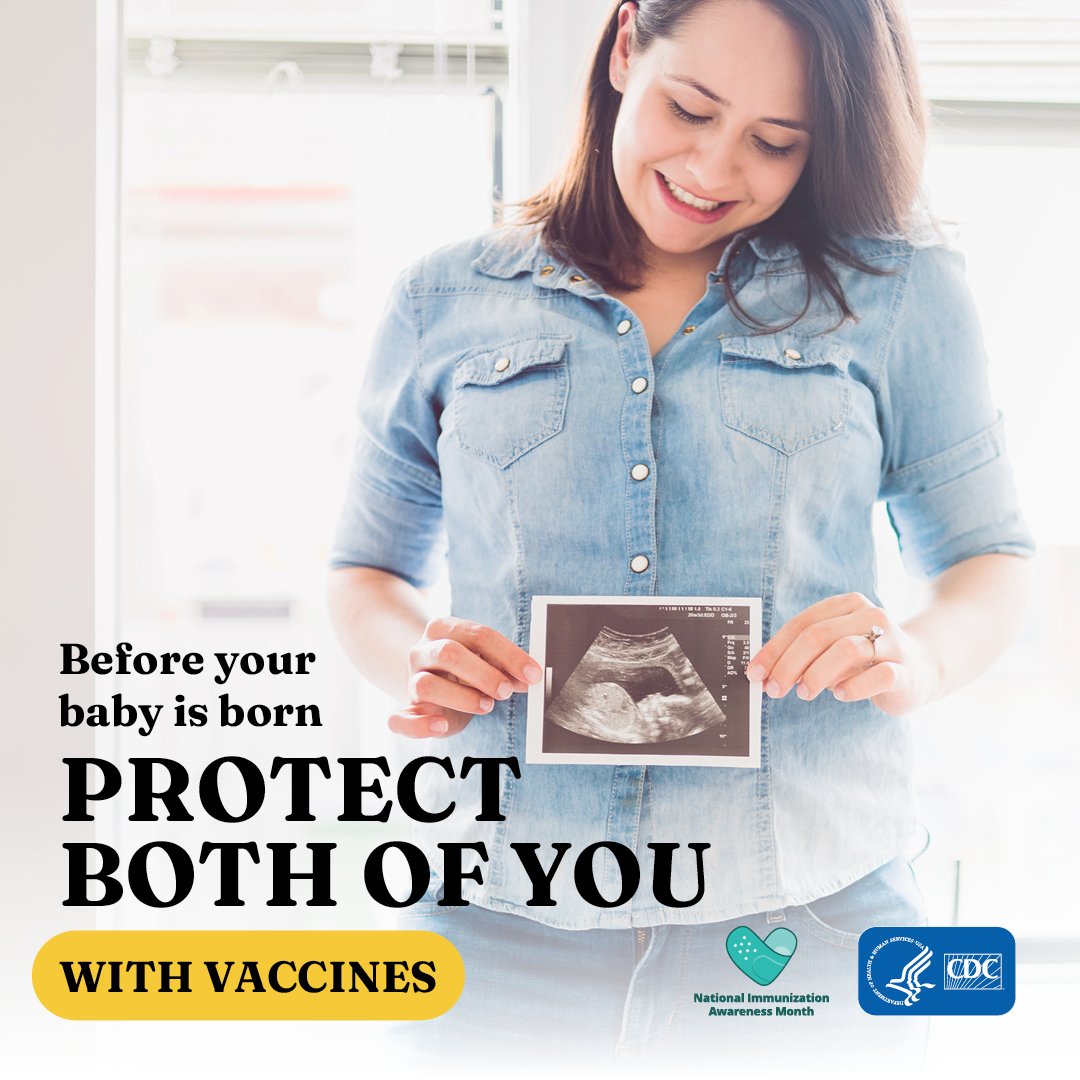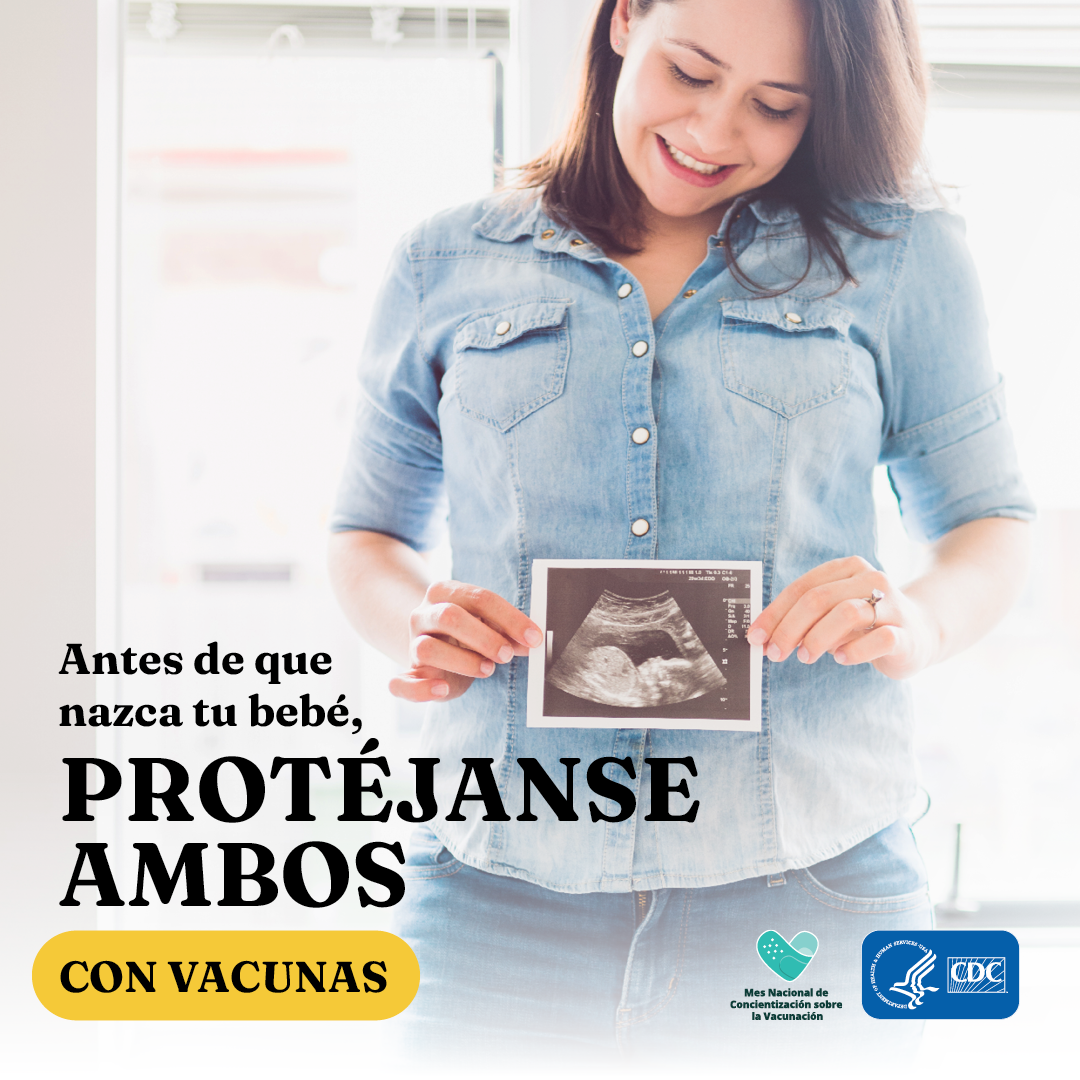Are You Up to Date on Routine Vaccinations?
Protect your health and community - stay up-to-date on routine vaccinations
August is National Immunization Awareness Month (NIAM). This annual observance highlights the importance of getting recommended vaccines throughout your life.
Routine vaccines play a vital role in preventing serious diseases and maintaining overall well-being. We know the COVID-19 pandemic impacted all aspects of life. As the world adapted to new safety measures, many individuals might have postponed their visits to healthcare providers, inadvertently increasing the risk of preventable diseases. However, with the situation improving, it's essential to talk with your doctor or healthcare provider to ensure you and your family are protected against serious diseases by getting caught up on routine vaccinations and wellness exams.
Protect Your Children
As your children prepare to head back to school this fall, it’s particularly important for you to work with your child’s doctor or nurse to make sure they get caught up on missed well-child visits and recommended vaccines.
Not sure which vaccines your child may need? Vaccines are recommended for children and adolescents based on age, health conditions, and other factors. Try the U.S. CDC’s Child and Adolescent Vaccine Assessment Tool. Answer seven quick questions to learn which vaccines your child may need (the CDC will not retain any personal information). The CDC also provides easy-to-use recommended vaccination schedules based on age:
Birth through age 6 years: English | Spanish
Age 7 though 18 years English | Spanish
Protect Yourself
Remember to take care of yourself too! Make sure to receive any vaccines you need to stay healthy. Use CDC’s adult vaccine assessment tool to see which vaccines might be right for you, including the COVID-19 vaccine, or check out the recommended vaccination schedules below:
Recommended vaccines for adults age 19 years and older: English | Spanish
By staying up-to-date on recommended vaccines and encouraging others to do the same, we ensure that ourselves and our loved ones stay protected and contribute to a healthier and more resilient society.
